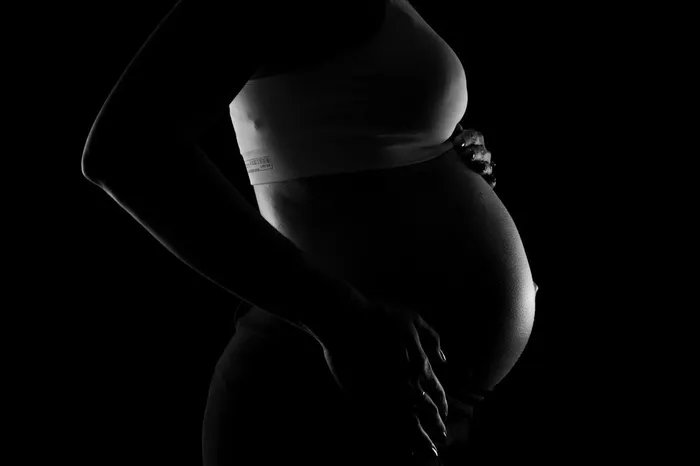Stop FASD from stealing futures: South Africa's urgent call to action for awareness

Every child born today deserves enough love, food, safety, and brainpower to have the best possible start in life.
Image: cottonbro studio /pexels
South Africa has the highest rate of Foetal Alcohol Spectrum Disorder (FASD) in the world.
This serious issue needs our attention, especially with International FASD Awareness Day coming up on 9 September.
FASD is a preventable but devastating public health crisis for children, and it keeps causing harm across generations.
What is FASD?
FASD refers to a range of lifelong physical, mental, and behavioural disorders caused by alcohol consumption during pregnancy. Even small amounts of alcohol can harm a developing foetus, impacting brain development, learning abilities, and overall health. The effects are irreversible.
In some parts of South Africa, like the Western and Northern Cape, FASD affects as many as one in three children.
Exacerbating this crisis are factors such as widespread binge drinking, intergenerational poverty, and the pervasive normalisation of alcohol consumption, even among expectant mothers.
FASD affects more than just the child. It can destabilise families, put pressure on healthcare, and weaken communities. Children with FASD often struggle with learning, memory, and behaviour for life. Many also grow up in unsafe homes where alcohol abuse leads to violence, neglect, and trauma.
“When a pregnant woman drinks, it’s not just her health at stake; it’s the child’s entire future,” says Kashifa Ancer, campaign manager for Rethink Your Drink, an initiative working to reduce alcohol-related harm in South Africa.
This isn’t just a woman’s issue or a health issue; it’s a societal emergency. Addressing FASD requires collective action from governments, communities, and individuals. We need to shift the narrative, challenge harmful norms, and create environments where children can thrive.
To fully grasp the roots of South Africa’s FASD crisis, we must consider its historical and systemic origins. Practices like the apartheid-era "dop system", which paid farmworkers with alcohol, fostered generational dependency on alcohol.
Today, that legacy continues, compounded by high levels of poverty, gender-based violence, and limited access to healthcare.
A 2022 study by May et al. reports a prevalence of 310 per 1,000 live births in some Western Cape communities. This is one of the highest rates globally, and it’s increasing.
According to Dr Noxolo Gqada, strategy lead for Hold My Hand, every child born today deserves enough love, food, safety, and brainpower to have the best possible start in life.
"Preventing FASD is one of the ways we can deliver on that promise.”

FASD encompasses a range of lifelong disorders that result from alcohol exposure during pregnancy.
Image: João Paulo de Souza Oliveira /Pexels
The societal cost of alcohol-related harm in South Africa is staggering, amounting to an estimated 12% of the country’s GDP.
Beyond the direct health implications, alcohol contributes to pedestrian fatalities (one in five child deaths), gender-based violence (linked to 60% of femicides), and risky behaviours among teenagers, including unsafe sex and school dropouts.
Teenagers are particularly vulnerable. The brain continues to develop until the age of 25, and alcohol use during these critical years can lead to permanent damage. In South Africa, binge drinking is normalised among teens, further perpetuating the cycle of harm.
There is hope, but it requires bold action. Organisations like Hold My Hand and Rethink Your Drink, supported by the DG Murray Trust (DGMT), are advocating for sweeping changes to reduce alcohol harm, including:
Government policy changes
- Ban alcohol advertising to reduce its appeal, especially among youth.
- Introduce Minimum Unit Pricing (MUP), which would make large, cheap bottles of alcohol less accessible.
- Restrict alcohol sales by limiting operating hours and enforcing stricter licensing regulations.
- Provide screening and treatment for alcohol use disorders, particularly for pregnant women.
Community-led initiatives
- Create safe, alcohol-free spaces where children and teenagers can grow and thrive.
- Offer healthier alternatives for teens to cope with peer pressure and stress.
- Educate communities about the dangers of drinking during pregnancy.
Individual responsibility
- Start real conversations about the risks of alcohol, particularly during pregnancy.
- Support women and pregnant individuals with resources to make healthier choices.
Public awareness campaigns are crucial in shifting perceptions around alcohol use. Rethink Your Drink challenges societal norms and industry practices that make heavy drinking so pervasive, especially in under-resourced communities.